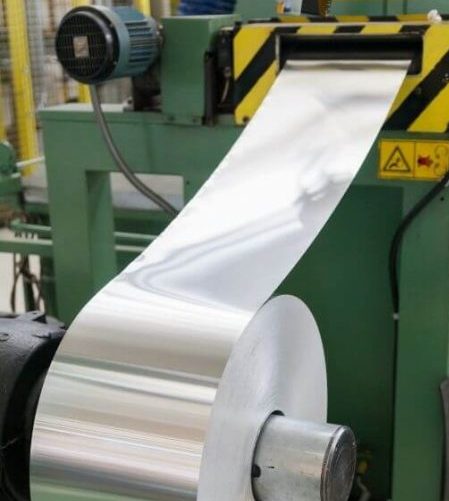For high-volume production runs with a wide range of material options, metal stamping offers you the versatility needed to manufacture complex metal components and parts. While non-metal materials can be used for stamping, metal is most often used due to its ease of fabrication and metal material choices.
Learn what metal materials are commonly used for stamping to help you decide which material is best suited for your application needs.
Ferrous Metals
High-strength and cost-efficiency make ferrous metals a viable choice for metal stamping. Carbon steel and stainless steel are two of the most used ferrous metals for stamped component manufacturing.
Carbon Steel
Exceptional malleability and ductility reflect carbon steel’s versatility. As a metal stamped component, carbon steel can be formed into a variety of shapes. It is particularly useful for automotive applications as well as construction purposes. Carbon steel stamping applications include:
- Structural components
- Automotive parts
- Industrial pipes and tubing
Stainless Steel
High-corrosion resistance combined with high-strength make stainless steel ideal for metal stamping. Due to its hygienic properties, stainless steel can be used for cookware, cutlery, as well as hygienic pump components. Common stainless steel metal stamping examples include:
- Food-grade applications
- Pharmaceutical applications
- Aerospace components
- Medical device components
Non-Ferrous Metals
With no iron content, non-ferrous metals provide exceptional malleability making them well-suited for metal stamping applications.
Aluminum
Cost-efficient with lightweight properties and high strength-to-weight ratio make aluminum a preferrable metal option for many industrial metal stamping purposes. As an electrically and thermally conductive material, aluminum is also suitable for solar applications. Examples of stamped aluminum components include:
- Aircraft and aerospace components
- Marine hardware
- Architectural framing
Copper
Non-reactive with thermal conductivity, copper provides the ductility and heat resistance needed for a variety of industrial and consumer metal stamping applications. It is often used for the following stamping applications:
- Medical device components
- HVAC components
- Plumbing pipes and tubing
Brass
As a soft alloy, brass has a smooth surface finish and bright aesthetically pleasing color. With its good corrosion resistance, it is used in the following stamping applications:
- Plumbing applications
- Electrical applications
- Electronic applications
- Automotive hardware
Superalloys/Nickel Alloys
Exotic alloys or superalloys can be used for metal stamping applications. These nickel alloys offer you exceptional strength in harsh conditions. Well-suited for aerospace requirements, it is important to note that superalloys can be difficult to work due to their mechanical properties.
Hastelloy
Resistant to harsh chemicals, Hastelloy can withstand corrosive environments as well as high-temperature environments. Hastelloy metal stamped components are suitable for the following applications:
- Aerospace components and parts
- Chemical processing components
- Industrial furnaces
Inconel
With fatigue resistance and high-strength, Inconel also offers you exceptional heat and corrosion resistance. Inconel can be used for metal stamping purposes, including:
- Chemical processing pipes
- Industrial fasteners
- Medical devices
Monel
Another viable option for corrosive environments, Monel can withstand extreme temperature shifts. Its ruggedness and high-strength make it suitable for applications such as:
- Oil and gas applications
- Military
- Chemical processing
- Marine applications
Work with Metal Stamping Experts
Now that you’ve learned more about metal materials used for stamped components, find out how metal stamping can save you time and money. Contact us and discuss your metal stamping project with us today.



